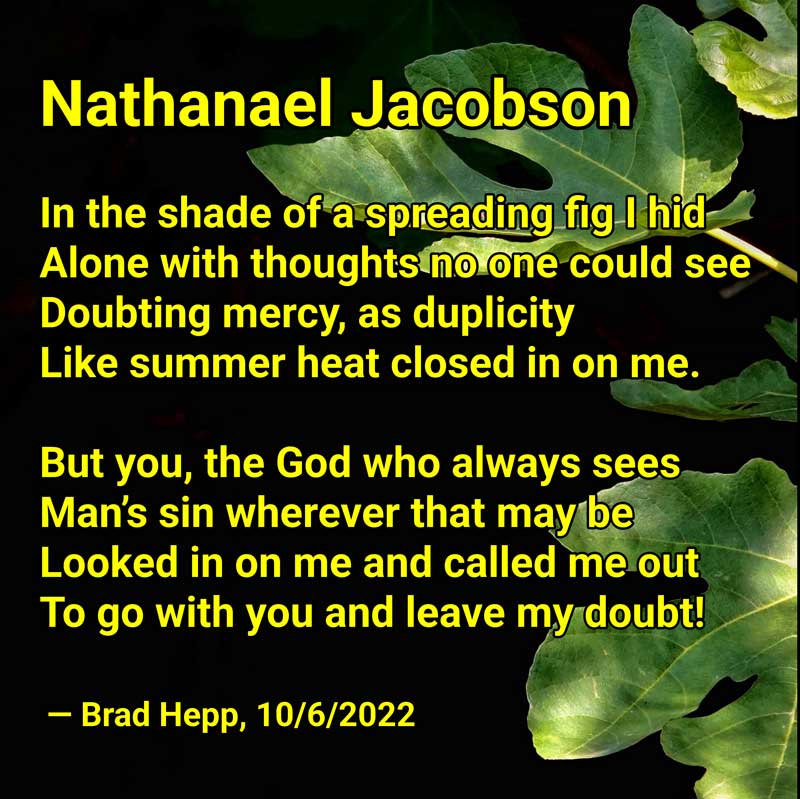
Commentary
I finished my crawl through Luke, and have begun my crawl through John. So far, the Greek seems easier, but John is every bit as much an allusionist as Luke.
John’s account of how Jesus called Nathanael to be one of his followers seems to be FULL of allusions. I doubt we can be definitive about what was going on in Jesus’ exchange with Nathanael. It does seem clear to me, though, that Jesus is alluding to Jacob/Israel in what he says to Nathanael. What was the condition of Nathanael’s heart? Why was he dismissive of goodness? How was he like Jacob, and how was the prospect of his own “Jacob’s ladder” a meaningful promise?
In this poem, I apply what I hope is sanctified imagination to the story. I realize that some of it is ambiguous. Let me clarify what I had in mind…. Nathanael seemed surprised that Jesus had seen him under the fig tree. I’m guessing he thought his being under the fig tree was completely private. But there’s more. Jesus welcomed Nathanael as “a true Israelite in whom there is no deceit!” Why “deceit?” And why, “a true Israelite?” Because of what Jesus says later about Nathanael seeing “heaven opened and the angels of God ascending and descending on the Son of Man,” I’m guessing that Jesus was comparing Nathanael to Jacob, who is often called “Jacob the Deceiver,” but was also called Israel. Here’s the premise of the poem: Nathanael had been under a fig tree reflecting on how he, like Jacob was a deceiver. He wondered — and doubted — how God could be merciful with him. Jesus knew all that, and showed him otherwise.
Another Possibility About Nathanael
Nathanael has always fascinated me. When Jesus said of Nathanael, “Look, a true Israelite in whom there is no deceit,” was he being facetious? That’s the possibility I am currently exploring. I used to think that Jesus probably meant something like, “that Nathanael speaks his mind!” Such a guileless man appeals to me. Regardless, truthfulness was probably an important issue to Nathanael. I speculate that duplicity–whether his own, or what he experienced from others–was oppressive to him. In this poem, I also speculate that he doubted the availability of mercy. But the God who sees and knows each of us intimately sought him out. That’s amazing grace!
(background photo by Schwoaze Sabine on Pixabay)
#genesis27-28 #jacob #jacobthedeceiver #israel #john1v45-51 #nathanael #trueisraelite #kingofisrael #jacobsladder #psalm32 #confession #forgiveness
